
Hank Ballard was an American singer and songwriter, the lead vocalist of the Midnighters and one of the first rock and roll artists to emerge in the early 1950s. He played an integral part in the development of the genre, releasing the hit singles "Work with Me, Annie" and answer songs "Annie Had a Baby" and "Annie's Aunt Fannie" with his Midnighters. He later wrote and originally recorded "The Twist" which was notably covered a year later by Chubby Checker, this second version spreading the popularity of the dance. He was inducted into the Rock and Roll Hall of Fame in 1990.

"Controversy" is a song by American musician Prince, the lead single and title track to his 1981 album. The song addresses speculation about Prince at the time such as his sexuality, gender, religion, and racial background, and how he could not understand the curiosity surrounding him.
"Rigor Mortis" is a song by American funk band Cameo, released on April 20, 1977 as a single from their debut studio album, Cardiac Arrest. In the US, the song peaked at number 33 on the Hot Soul Singles chart. In this instance "Rigor Mortis" is a euphemism for being lonesome on the dance floor.
Calloway is an R&B duo of Cincinnati, Ohio brothers Reggie and Vincent Calloway. They had a major hit in 1990 with "I Wanna Be Rich".
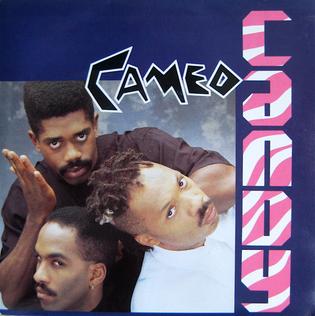
"Candy" is a song by American funk band Cameo, released as the second single from their 1986 album Word Up!. The song features a solo by saxophonist Michael Brecker. "Honey", a reworked version with different lyrics was included on their next album, Machismo.
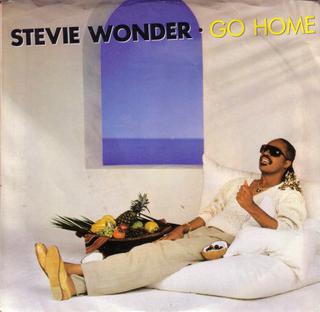
"Go Home" is a song by Stevie Wonder, released as the second single from his twentieth studio album, In Square Circle (1985). The song showcased the narrator's plea to a young woman to go home, though the girl tries to get the narrator to stay with her. In the US, the song peaked at #2 on the Billboard R&B chart and #10 on the Billboard Hot 100 and, to date, is Wonder's last song to reach the US top ten on the Hot 100. "Go Home" also topped both the Billboard dance chart and the Billboard Adult Contemporary chart.
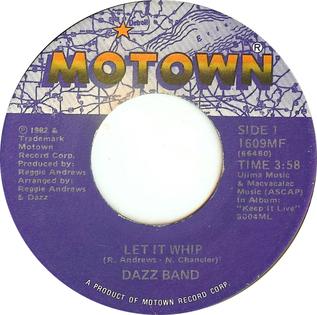
"Let It Whip" is a 1982 single by Dazz Band and their biggest hit, peaking at number one on the R&B chart for five non-consecutive weeks. The single also reached number two on the Dance chart and number five on the Billboard Hot 100 chart. The song won the 1982 Grammy Award for Best R&B Performance by a Duo or Group with Vocals.

"Let the Beat Hit 'Em" is a song by American urban contemporary band Lisa Lisa and Cult Jam, released as the first single from their fourth and final studio album, Straight Outta Hell's Kitchen (1991). The song spent one week at number-one on the US R&B chart in the week of September 14, 1991, and also reached No. 37 on the Billboard Hot 100. On the US dance charts, it was the third and final number-one for the group. It also peaked at number-one on the Canadian RPM dance chart.
"Rise" is an instrumental written by Andy Armer and Randy 'Badazz' Alpert, first recorded in 1979 by trumpeter Herb Alpert. Released as a single from Alpert's solo album Rise, the song reached #1 on the Billboard charts. It is the instrumental sample for The Notorious B.I.G. hit "Hypnotize".
Brooklyn Dreams were an American singing group of the late 1970s, mixing R&B harmonies with contemporary dance/disco music and best known for a number of collaborations with singer Donna Summer. The band consisted of Joe "Bean" Esposito, Eddie Hokenson and Bruce Sudano. Esposito provided lead vocals for the band and played guitar, while Sudano played keyboards and Hokenson played drums and occasionally sang lead vocals.

"One Nation Under a Groove" is a 1978 song by Funkadelic, the title track from their album of the same name. It has endured as a dance funk classic and is probably Funkadelic's most widely known song. "One Nation Under a Groove" was Funkadelic's first million selling single, as well as the third million selling single for the P-Funk organization overall.

"The Breaks" is a song by American rapper Kurtis Blow from his self-titled debut album. It was released as a single in June 1980 and peaked at No. 87 on the Billboard Hot 100. It was the first certified gold rap song, and the second certified gold 12-inch single. In 2008, the song ranked #10 on VH1's 100 Greatest Hip-Hop Songs.
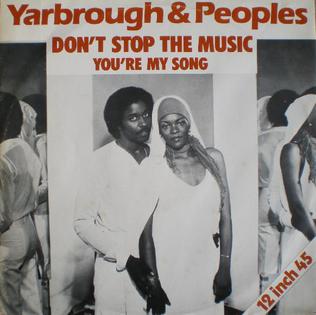
"Don't Stop the Music" is a song by Yarbrough and Peoples, from the duo's 1980 debut album, The Two of Us. It was released as a single on Mercury Records in 1980.

"Wake Up Everybody" is an R&B song written by John Whitehead, Gene McFadden and Victor Carstarphen.

"Funkin' for Jamaica (N.Y.)" is a song by jazz trumpeter Tom Browne. The single—a memoir of the Jamaica neighborhood in the New York City borough of Queens where Browne was born and raised—is from his second solo album, Love Approach. Browne got the idea for the song while he was at his parents' home. The vocals for the single were performed by Toni Smith, who also helped compose the song. The song hit number one on the US Billboard R&B chart for a month. "Funkin' for Jamaica" peaked at number nine on the dance chart and made the top 10 on the UK Singles Chart, but it never charted on the Billboard Hot 100.
"Operator" is a 1984 R&B/electronic dance song by Midnight Star, produced by then-current bandmember Reggie Calloway, released as a single from their album, Planetary Invasion.

"Keep On Dancin'" is the debut single by Gary's Gang, a disco group from Queens, New York. The song became successful in several countries in 1979.
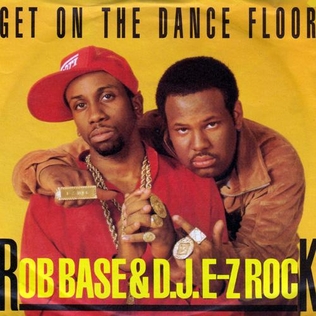
"Get on the Dance Floor" is a 1988 hip-hop single by Rob Base and DJ E-Z Rock. The single was their follow up to their highly successful recording, "It Takes Two". On the dance chart, "Get on the Dance Floor" was more successful than its predecessor, hitting number one for two weeks in January 1989. It also peaked at number eleven on the R&B singles chart.

"Friends" is a song by the American hip-hop group Whodini. The song reached #4 on the U.S. Billboard Hot R&B/Hip-Hop Songs chart.
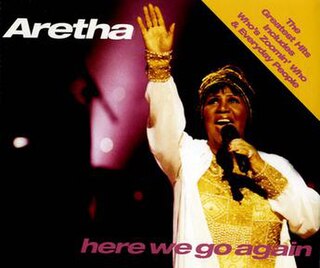
"Here We Go Again" is a song by American singer and songwriter Aretha Franklin. It was written by Trina Broussard, Jermaine Dupri and Trey Lorenz for Franklin's thirty-fourth studio album, A Rose Is Still a Rose (1998), while production was helmed by Dupri and Manuel Seal. The song is built around replayed portions of "The Glow of Love" (1980) by Italian-American post-disco group Change. Due to the inclusion of the sample, Mauro Malavasi, David Romani and Wayne K. Garfield are also credited as songwriters. The song was the second single released from A Rose Is Still a Rose in June 1998 and reached number 76 on the Billboard Hot 100, also becoming Franklin's fifth number one on the US Dance Club Songs.















